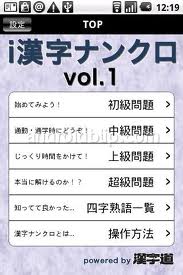
Why, then, with so many challenges made, has technology not been able to overcome the language barrier?
Some of the most difficult words to translate are from Japanese. For example, one of the most difficult words to translate is “naa” used in the Kansai area of Japan to emphasize statements or to demonstrate that the thread of the conversation has not been broken.
It is true that there is a flurry of online tools to reduce the language gap in more than 50 languages. However, for the time being the system translates too literally and lacks the nuances and double meanings of a human who does speak the language.
In Japanese, one of the biggest challenges is Kanji. In Japanese there are three different types of writing. One alphabet is used specially for foreign words, and, as if that were not already complicated enough, there are about 50,000 characters,or kanji, which are literal representations of complete concepts.
While there is an application on a smartphone that allows you to enter kanji by hand to provide a dictionary definition, you have to know the order of the strokes to interpret the characters correctly.
There is another tool, like a pencil, as it moves over a text, provides a translation.
While all these smart devices help a lot, AI still has failed to discover what people “mean” beyond what they are “literally saying.”
For example, the Japanese, like many Eastern cultures, prefer to speak indirectly, avoiding being very explicit and front.
Then, if the taxi driver says it is very difficult to reach the airport within 40 minutes, what he really is saying is that they will not get there at that time in any way. He simply cannot say “no”, but that’s what he is saying. Similarly, if someone tries to tell a person that they cannot go to a get together, they say “Maybe I’ll go.”
Will Artificial Intelligence ever be able to resolve these everyday situations?
(Spanish version: https://www.trustedtranslations.com/como-interpretar-correctamente-el-japones-2010-11-10.html)





